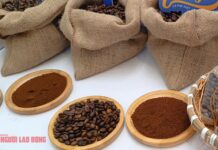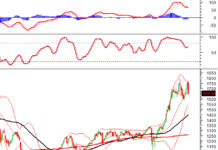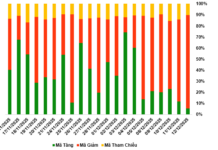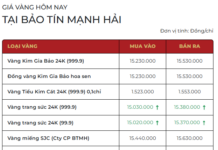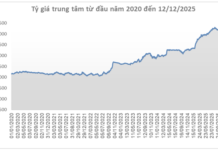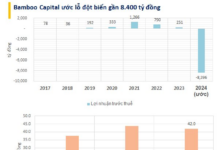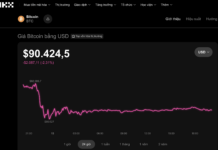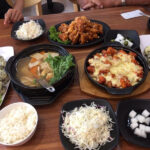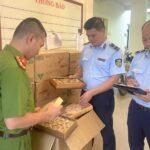According to the Plant Protection Department, in 2024, the unit included a food safety (FS) monitoring program for imported grapes. Checking 10 samples of imported Chinese grapes revealed no FS violations (pesticide residues). In 2023, inspecting 77 samples found 1 sample (1.3%) violating Vietnamese regulations.
Following reports of Chinese milk grapes being detected with toxic substances in Thailand, the Plant Protection Department stated they would contact the Thai Ministry of Agriculture and FDA to obtain official information. Based on the analysis results and official warnings from Thailand, the Department will consider applying stringent inspection methods for grape imports from China.
Simultaneously, they will continue to exchange information through international FS alert channels to assess FS risks associated with Chinese grapes. However, information on this matter should be officially communicated by the managing authorities (Ministry of Agriculture and Rural Development) to prevent inaccurate public perceptions.
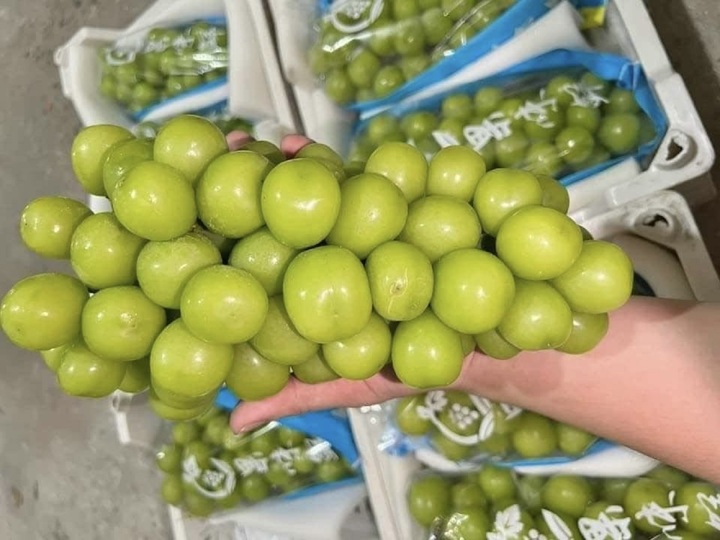
No toxic residues found in Chinese milk grapes in Vietnam.
It is understood that FS inspections for imported fruit shipments are currently conducted following Decree 15/2018/ND-CP, dated February 2, 2018, detailing the implementation of several articles of the Law on Food Safety by the Government.
The Decree stipulates three FS inspection methods: stringent inspection, routine inspection, and reduced inspection. The application of each method is based on FS risk assessments for imported shipments/products.
The reduced inspection method involves examining up to 5% of the total number of imported shipments’ documents over one year, randomly selected by customs authorities. The routine inspection method only involves checking the documents of the imported shipment. Finally, the stringent inspection method combines document checks with sampling and testing.
Based on domestic and international FS monitoring, post-inspection alerts, and violations over the years, the specialized managing agency decides to apply either routine or stringent inspection methods for shipments and products.
Currently, all fruit shipments, including grapes imported into Vietnam, are subject to routine FS inspections (document checks only). The FS inspection procedure is carried out following Decree 15.
According to the Plant Protection Department, in addition to pre-clearance FS inspections for imported fruits, the agency also conducts an annual FS monitoring program for plant-based foods, including imported ones. This involves sampling and analyzing FS indicators, particularly pesticide residues in imported fruits.
The goal is to assess the safety of imported foods by evaluating their compliance with Vietnam’s FS regulations. It also serves to support FS inspections for imported plant-based products, prevent unsafe goods from entering the market, and protect domestic consumers’ health. Timely suggestions are then made to the managing agency regarding additional or alternative inspection indicators and products for imported foods to match the actual situation.
Recently, public concern was sparked by a warning from the Pesticide Alert Network in Thailand (Thai-PAN) about grape contamination. They reported that most of the fruit samples collected contained harmful chemical residues exceeding the maximum permitted levels.
Shine Muscat grapes (milk grapes) are a famous Japanese variety. This type of grape has been present in the Vietnamese market for almost a decade in modest quantities due to its high price. However, in recent years, as China expanded its growing areas, Chinese milk grapes have flooded the Vietnamese market with large volumes and increasingly affordable prices.
The Frozen Durian Export Market: A Tasty $300 Million Opportunity
The Chinese market has a huge appetite for durian, with fresh imports totaling a whopping $6.7 billion in 2023, according to the Plant Protection Department. This figure also includes a substantial $1 billion worth of frozen durian imported solely from Thailand and Malaysia, highlighting the growing demand for this unique fruit in China.
The Frozen Durian Export Market: A Tasty $300 Million Opportunity
The Chinese market has a huge appetite for durian, with fresh imports totaling a whopping $6.7 billion in 2023, according to the Plant Protection Department. This figure also includes a substantial $1 billion worth of frozen durian imported solely from Thailand and Malaysia, highlighting the growing demand for this unique fruit in China.
“Internal Messages Leaked: 18-Year-Old Fried Chicken Chain in Vietnam Accused of Serving Leftover Food”
Papas’ Chicken temporarily halts operations at its Hoang Van Thu branch in Tan Binh District, Ho Chi Minh City, as the fast-food chain’s management launches an investigation into a reported product quality issue. The popular fried chicken restaurant has assured the public that it is taking immediate action to address the concern and will provide updates as the verification process unfolds.

